Author: Angela M. Doel, Psychotherapist
After graduating from the University of Pennsylvania with her degree in Counseling Psychology, Angela M. Doel worked as a psychotherapist, primarily with families and couples.
Her research interests include interpersonal communication, and in 2020, she published The Couples Communication Workbook: Therapeutic Homework Assignments to Foster Supportive Relationships.
Along with publishing ten other mental health workbooks, Ms. Doel has written hundreds of mental health articles, blog posts, white papers, and psychotherapy assignment worksheets for adults, teens, and couples.
-
 Interpersonal Psychotherapy (IPT) helps clients understand how their relationships impact their emotional well-being and how their emotions affect their relationships. Unlike other therapeutic modalities, IPT is present-focused and targets the interpersonal issues and conflicts that contribute to distress. IPT reduces mental health symptoms by improving interpersonal functioning (Weissman et. al., 2000). IPT is currently used […]
Interpersonal Psychotherapy (IPT) helps clients understand how their relationships impact their emotional well-being and how their emotions affect their relationships. Unlike other therapeutic modalities, IPT is present-focused and targets the interpersonal issues and conflicts that contribute to distress. IPT reduces mental health symptoms by improving interpersonal functioning (Weissman et. al., 2000). IPT is currently used […] Angela M. Doel, Psychotherapist
Angela M. Doel, Psychotherapist -
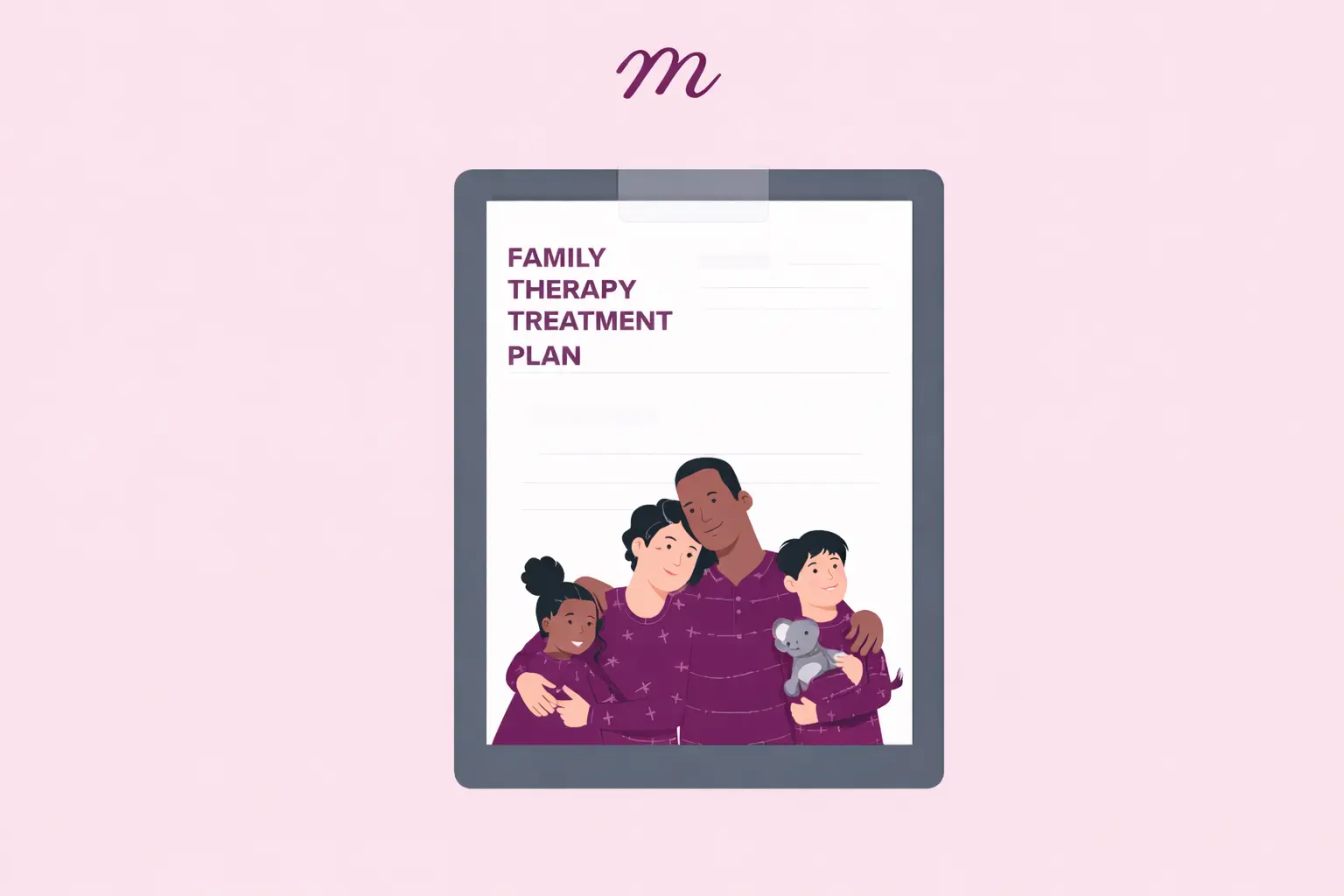 As a therapist wishing to write an effective family therapy treatment plan, you must first understand the family dynamics, identifying relevant issues while developing structured, collaborative goals to address the problems initially identified by the family members. Follow these steps to create a tailored, clear, and comprehensive family therapy treatment plan: Elements of a family […]
As a therapist wishing to write an effective family therapy treatment plan, you must first understand the family dynamics, identifying relevant issues while developing structured, collaborative goals to address the problems initially identified by the family members. Follow these steps to create a tailored, clear, and comprehensive family therapy treatment plan: Elements of a family […] Angela M. Doel, Psychotherapist
Angela M. Doel, Psychotherapist -
 Though it may seem like an overwhelming goal, becoming a private practice therapist is more than realistic with proper planning, taking appropriate action, and cultivating an entrepreneur’s mindset. This article was written for you if you want to transition from an agency or clinic or if you’ve recently completed a degree or certification program and […]
Though it may seem like an overwhelming goal, becoming a private practice therapist is more than realistic with proper planning, taking appropriate action, and cultivating an entrepreneur’s mindset. This article was written for you if you want to transition from an agency or clinic or if you’ve recently completed a degree or certification program and […] Angela M. Doel, Psychotherapist
Angela M. Doel, Psychotherapist -
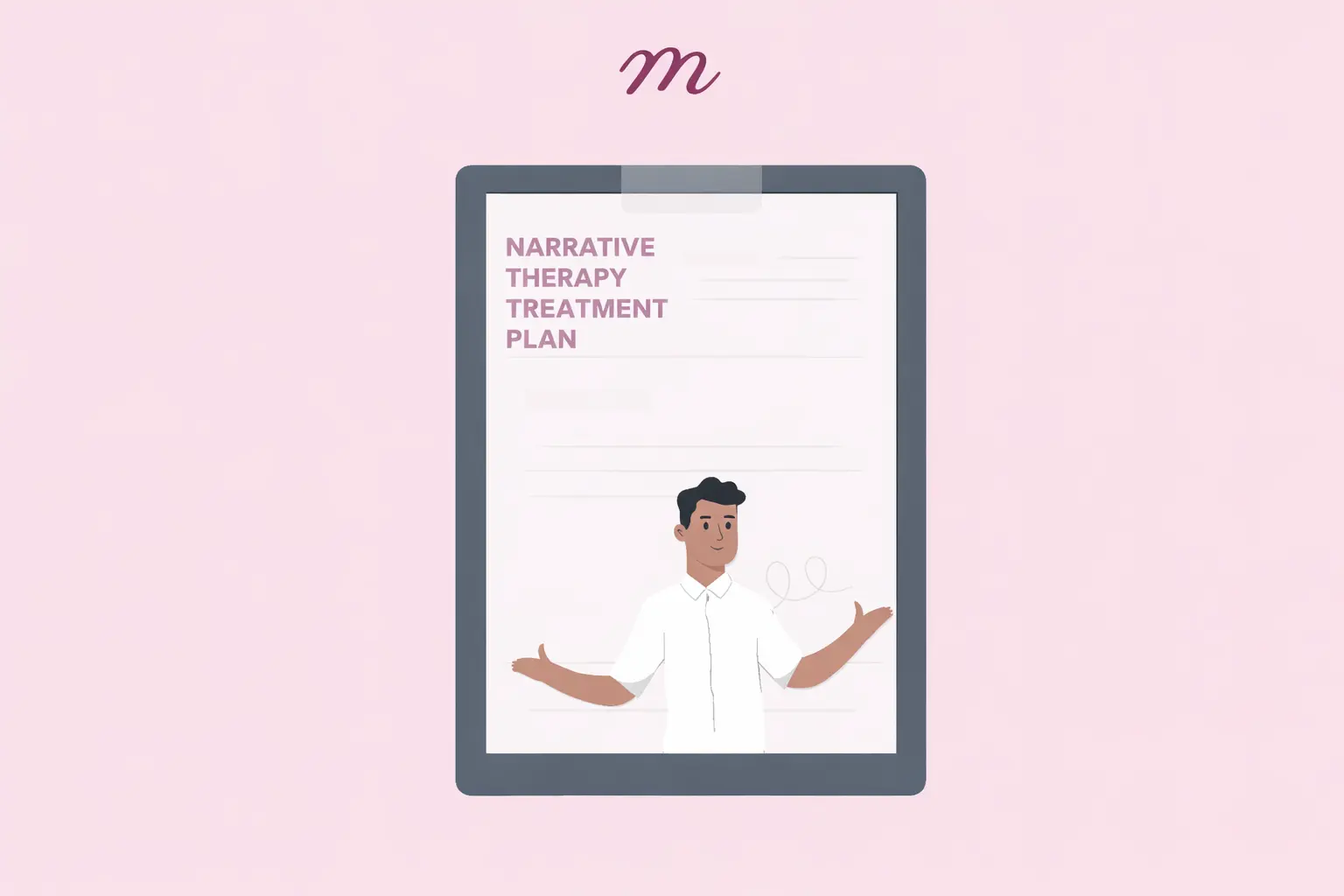 Writing a narrative therapy treatment plan is a client-centered process that involves collaboration and a thorough understanding of the client’s story. The therapist must be skilled at assisting the client in reshaping their story in an empowering, strengths-focused, value-driven manner. Follow these steps to write the treatment plan, considering the list of questions you […]
Writing a narrative therapy treatment plan is a client-centered process that involves collaboration and a thorough understanding of the client’s story. The therapist must be skilled at assisting the client in reshaping their story in an empowering, strengths-focused, value-driven manner. Follow these steps to write the treatment plan, considering the list of questions you […] Angela M. Doel, Psychotherapist
Angela M. Doel, Psychotherapist -
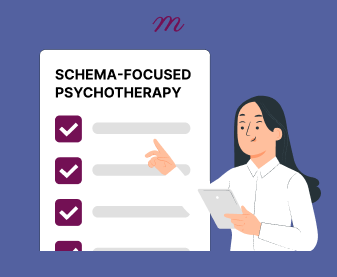 Schemas consist of negative/dysfunctional thoughts and feelings that develop early in life because caregivers do not adequately meet a child’s need for connection, autonomy, play, spontaneity, limits, and assertions. Negative patterns are repeated and strengthened throughout the client’s life, creating obstacles to accomplishing their goals and meeting their needs. Client examples of schema beliefs: […]
Schemas consist of negative/dysfunctional thoughts and feelings that develop early in life because caregivers do not adequately meet a child’s need for connection, autonomy, play, spontaneity, limits, and assertions. Negative patterns are repeated and strengthened throughout the client’s life, creating obstacles to accomplishing their goals and meeting their needs. Client examples of schema beliefs: […] Angela M. Doel, Psychotherapist
Angela M. Doel, Psychotherapist -
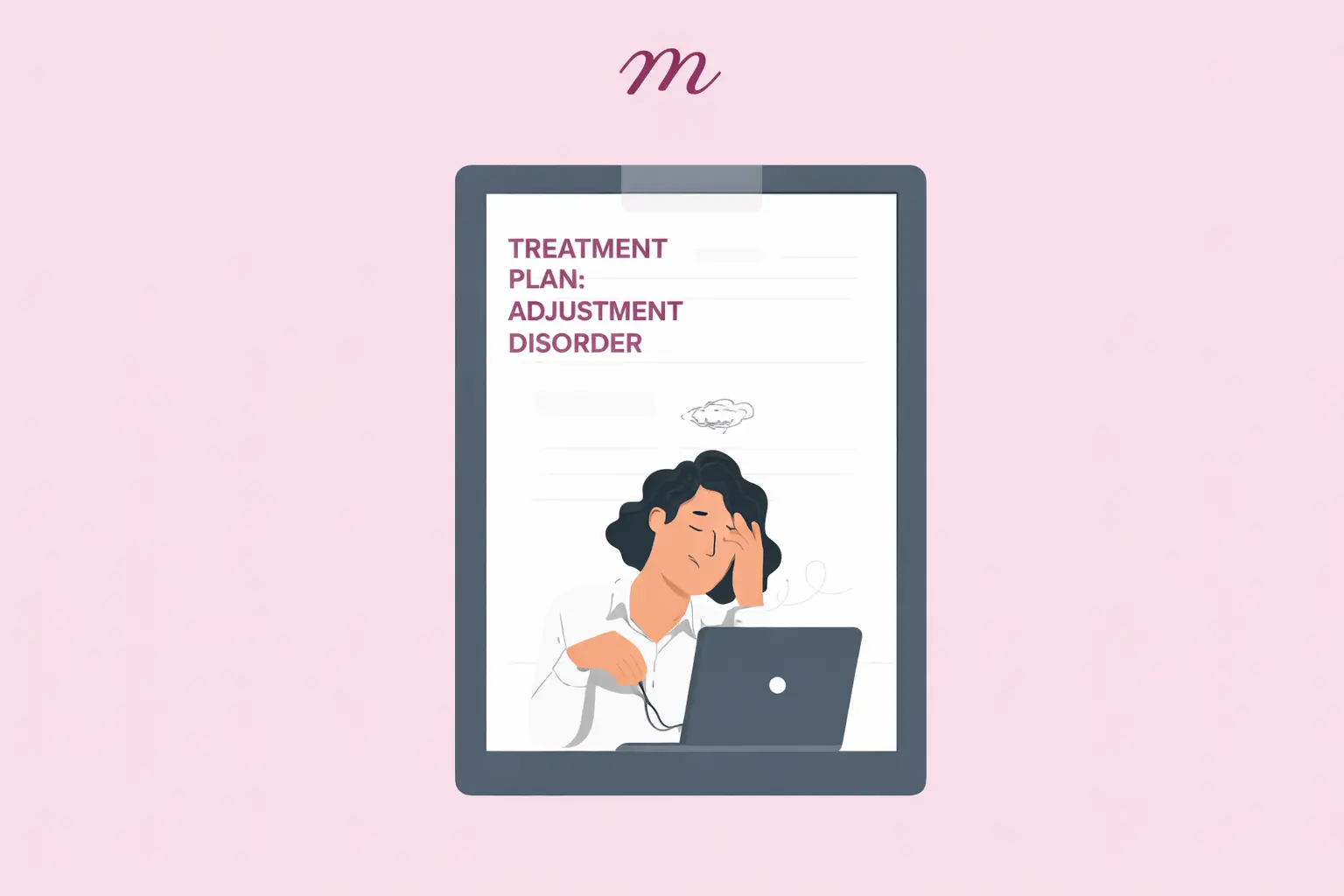 Adjustment disorder is a complex problem that impacts clients’ perceptions of the environment and themselves. While there isn’t a single definitive approach to treating adjustment disorder, therapists can effectively address this condition by developing an individualized treatment plan for clients diagnosed with this condition. How Can a Therapist Create an Adjustment Disorder Treatment Plan? During […]
Adjustment disorder is a complex problem that impacts clients’ perceptions of the environment and themselves. While there isn’t a single definitive approach to treating adjustment disorder, therapists can effectively address this condition by developing an individualized treatment plan for clients diagnosed with this condition. How Can a Therapist Create an Adjustment Disorder Treatment Plan? During […] Angela M. Doel, Psychotherapist
Angela M. Doel, Psychotherapist -
 In recent years, telehealth has transformed the delivery of mental health services, offering a convenient and accessible option for both therapists and clients. According to Psychology Today, 55% of therapists were practicing online therapy exclusively, and an additional 25% were doing between 60% and 99% of their practice online (Scharff, 2021). Starting a telehealth private practice […]
In recent years, telehealth has transformed the delivery of mental health services, offering a convenient and accessible option for both therapists and clients. According to Psychology Today, 55% of therapists were practicing online therapy exclusively, and an additional 25% were doing between 60% and 99% of their practice online (Scharff, 2021). Starting a telehealth private practice […] Angela M. Doel, Psychotherapist
Angela M. Doel, Psychotherapist -
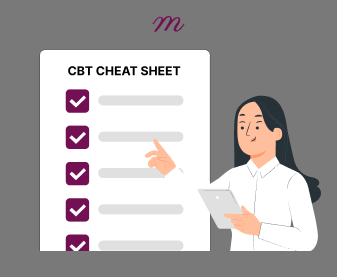 Cognitive Behavioral Therapy (CBT) focuses on identifying and challenging negative thought patterns and behaviors to improve emotional regulation and develop healthier coping mechanisms. Thoughts (cognitions), feelings (emotions), and behaviors are interconnected, meaning that changing one influences the others. So, by modifying maladaptive thinking, the client experiences positive changes in their emotions and behaviors. CBT is […]
Cognitive Behavioral Therapy (CBT) focuses on identifying and challenging negative thought patterns and behaviors to improve emotional regulation and develop healthier coping mechanisms. Thoughts (cognitions), feelings (emotions), and behaviors are interconnected, meaning that changing one influences the others. So, by modifying maladaptive thinking, the client experiences positive changes in their emotions and behaviors. CBT is […] Angela M. Doel, Psychotherapist
Angela M. Doel, Psychotherapist -
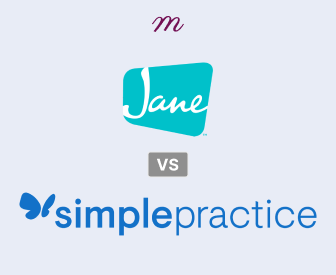 Therapy practice management software (PMS) assists psychotherapists and counselors in running their practices. The best options combine electronic health records (EHR) and customer relationship management (CRM). In other words, great platforms include client documentation, privacy compliance, and client-focused features and tools. Before therapists sign up for practice management software, they must consider their practice goals and needs. […]
Therapy practice management software (PMS) assists psychotherapists and counselors in running their practices. The best options combine electronic health records (EHR) and customer relationship management (CRM). In other words, great platforms include client documentation, privacy compliance, and client-focused features and tools. Before therapists sign up for practice management software, they must consider their practice goals and needs. […] Angela M. Doel, Psychotherapist
Angela M. Doel, Psychotherapist -
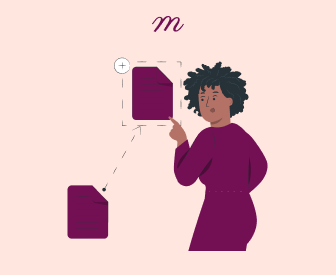 In private practice counseling, the first step in getting to know a new client is often through the intake form. This form is like a friendly questionnaire that helps the therapist understand the client's background and what they're seeking help for. A good intake form makes the process smoother and helps the therapist be more […]
In private practice counseling, the first step in getting to know a new client is often through the intake form. This form is like a friendly questionnaire that helps the therapist understand the client's background and what they're seeking help for. A good intake form makes the process smoother and helps the therapist be more […] Angela M. Doel, Psychotherapist
Angela M. Doel, Psychotherapist -
 Starting your private practice can be both overwhelming and rewarding. While the process requires effort, dedication, and strategic planning on your part, the benefits often far outweigh the challenges. This article explores seven benefits of starting your private practice, providing a detailed look at why you might want to take this professional leap of faith. […]
Starting your private practice can be both overwhelming and rewarding. While the process requires effort, dedication, and strategic planning on your part, the benefits often far outweigh the challenges. This article explores seven benefits of starting your private practice, providing a detailed look at why you might want to take this professional leap of faith. […] Angela M. Doel, Psychotherapist
Angela M. Doel, Psychotherapist -
 In mental healthcare, understanding the difference between process and content is essential when conducting effective therapy. This article explains what these terms mean and why they matter in different therapeutic settings. Practical examples demonstrate how process and content work in practice. Understanding Content and Process Content and process, while interrelated, serve different purposes, and require […]
In mental healthcare, understanding the difference between process and content is essential when conducting effective therapy. This article explains what these terms mean and why they matter in different therapeutic settings. Practical examples demonstrate how process and content work in practice. Understanding Content and Process Content and process, while interrelated, serve different purposes, and require […] Angela M. Doel, Psychotherapist
Angela M. Doel, Psychotherapist -
 The treatment plan template by Mentalyc is an excellent tool that can be used by therapists and counselors to map out the path of therapy for their clients. It helps in organizing the goals of the counseling sessions, the methods to be used, and the timeline for achieving these goals. This template serves as a […]
The treatment plan template by Mentalyc is an excellent tool that can be used by therapists and counselors to map out the path of therapy for their clients. It helps in organizing the goals of the counseling sessions, the methods to be used, and the timeline for achieving these goals. This template serves as a […] Angela M. Doel, Psychotherapist
Angela M. Doel, Psychotherapist -
 Managing a practice involves various administrative tasks that can be time-consuming and complex, but Practice Management Software (PMS) can provide a streamlined solution for handling daily operations. Practice Management Software (PMS) assists in managing daily operations within a clinical practice, including scheduling appointments, billing, managing client records, and ensuring compliance with healthcare regulations. PMS is […]
Managing a practice involves various administrative tasks that can be time-consuming and complex, but Practice Management Software (PMS) can provide a streamlined solution for handling daily operations. Practice Management Software (PMS) assists in managing daily operations within a clinical practice, including scheduling appointments, billing, managing client records, and ensuring compliance with healthcare regulations. PMS is […] Angela M. Doel, Psychotherapist
Angela M. Doel, Psychotherapist -
 A comprehensive and well-written treatment plan guides therapy sessions by providing structure, focus, and direction. It allows therapists and clients to work together to set goals, tailor interventions, optimize outcomes, and track progress. Treatment plans also facilitate efficient use of session time and promote active client participation. With a roadmap guiding each session, therapists can better prioritize […]
A comprehensive and well-written treatment plan guides therapy sessions by providing structure, focus, and direction. It allows therapists and clients to work together to set goals, tailor interventions, optimize outcomes, and track progress. Treatment plans also facilitate efficient use of session time and promote active client participation. With a roadmap guiding each session, therapists can better prioritize […] Angela M. Doel, Psychotherapist
Angela M. Doel, Psychotherapist -
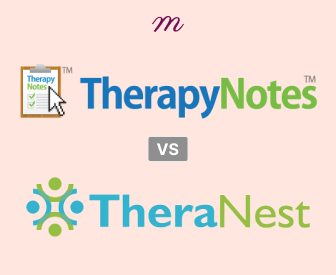 Comparing practice management software options can help mental health professionals seek efficient ways to manage their practices. TheraNest and TherapyNotes are two electronic health records systems that provide excellent value for the mental health practices. TherapyNotes offers straightforward efficiency with its core features. TheraNest, on the other hand, includes Wiley integration and also offers an […]
Comparing practice management software options can help mental health professionals seek efficient ways to manage their practices. TheraNest and TherapyNotes are two electronic health records systems that provide excellent value for the mental health practices. TherapyNotes offers straightforward efficiency with its core features. TheraNest, on the other hand, includes Wiley integration and also offers an […] Angela M. Doel, Psychotherapist
Angela M. Doel, Psychotherapist -
 Therapists often seek tools that enhance the effectiveness and efficiency of their practices. Wiley Treatment Planners, a series of resources developed by John Wiley & Sons, Inc., stands out as a valuable tool. Once only available in book format, the treatment planners are now available as online tools on several HER platforms. This article explores […]
Therapists often seek tools that enhance the effectiveness and efficiency of their practices. Wiley Treatment Planners, a series of resources developed by John Wiley & Sons, Inc., stands out as a valuable tool. Once only available in book format, the treatment planners are now available as online tools on several HER platforms. This article explores […] Angela M. Doel, Psychotherapist
Angela M. Doel, Psychotherapist -
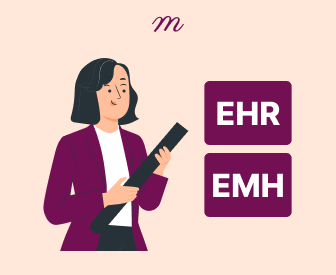 Evaluating an electronic health record system requires a structured approach considering various factors, from system features to implementation processes and organizational needs. In this blog, you will find a detailed checklist that includes an EHR scorecard, a features checklist, and considerations for assessing the implementation of an EHR system. Why an EHR Needs Assessment? This […]
Evaluating an electronic health record system requires a structured approach considering various factors, from system features to implementation processes and organizational needs. In this blog, you will find a detailed checklist that includes an EHR scorecard, a features checklist, and considerations for assessing the implementation of an EHR system. Why an EHR Needs Assessment? This […] Angela M. Doel, Psychotherapist
Angela M. Doel, Psychotherapist -
 Clinical documents are essential for psychotherapists to maintain organized and confidential records of their clients' treatment and progress. Clear, accurate, and comprehensive documentation supports mental health professionals in providing better care, tracking progress and change, and ensuring compliance with ethical and legal standards. The Vital Role of Clinical Documents in Psychotherapy Clinical documents are truly […]
Clinical documents are essential for psychotherapists to maintain organized and confidential records of their clients' treatment and progress. Clear, accurate, and comprehensive documentation supports mental health professionals in providing better care, tracking progress and change, and ensuring compliance with ethical and legal standards. The Vital Role of Clinical Documents in Psychotherapy Clinical documents are truly […] Angela M. Doel, Psychotherapist
Angela M. Doel, Psychotherapist -
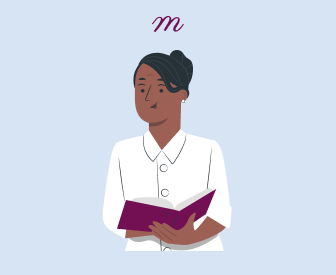 In mental healthcare, the demand for therapy and counseling services often surpasses the availability of practitioners, leading to the creation of client waitlists. Managing a waitlist can present challenges in ensuring equitable access and maintaining client engagement. This article offers practical strategies for therapists to efficiently build, manage, and utilize a client waitlist, considering both […]
In mental healthcare, the demand for therapy and counseling services often surpasses the availability of practitioners, leading to the creation of client waitlists. Managing a waitlist can present challenges in ensuring equitable access and maintaining client engagement. This article offers practical strategies for therapists to efficiently build, manage, and utilize a client waitlist, considering both […] Angela M. Doel, Psychotherapist
Angela M. Doel, Psychotherapist -
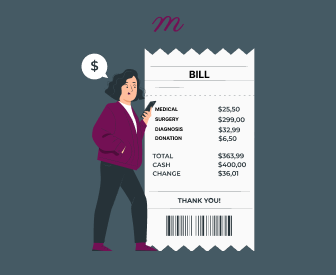 Figuring out the complexities of mental health billing requires a comprehensive understanding and knowledge of the most current CPT (Current Procedural Terminology) codes. These codes are important for therapists and mental health professionals to accurately bill for their services, ensuring they are compensated appropriately while maintaining compliance with insurance requirements. In this blog we will […]
Figuring out the complexities of mental health billing requires a comprehensive understanding and knowledge of the most current CPT (Current Procedural Terminology) codes. These codes are important for therapists and mental health professionals to accurately bill for their services, ensuring they are compensated appropriately while maintaining compliance with insurance requirements. In this blog we will […] Angela M. Doel, Psychotherapist
Angela M. Doel, Psychotherapist -
 SOAP note is a standardized method mental health professionals use to document and organize information gathered during client sessions. SOAP stands for Subjective, Objective, Assessment, and Plan, which are the components of this documentation method. Writing practical SOAP notes is a fundamental skill for psychotherapists. It provides a structured way to document therapy sessions. This […]
SOAP note is a standardized method mental health professionals use to document and organize information gathered during client sessions. SOAP stands for Subjective, Objective, Assessment, and Plan, which are the components of this documentation method. Writing practical SOAP notes is a fundamental skill for psychotherapists. It provides a structured way to document therapy sessions. This […] Angela M. Doel, Psychotherapist
Angela M. Doel, Psychotherapist -
 Mental health professionals understand that therapy must be tailored to meet each client's unique needs. This often involves exploring different methods and techniques while remaining adaptable and ready to refine and adjust the therapeutic approach as treatment progresses. Embracing flexibility and innovation in therapeutic practices is vital to facilitating significant breakthroughs and supporting clients in […]
Mental health professionals understand that therapy must be tailored to meet each client's unique needs. This often involves exploring different methods and techniques while remaining adaptable and ready to refine and adjust the therapeutic approach as treatment progresses. Embracing flexibility and innovation in therapeutic practices is vital to facilitating significant breakthroughs and supporting clients in […] Angela M. Doel, Psychotherapist
Angela M. Doel, Psychotherapist -
 Confidentiality is the cornerstone of the therapeutic relationship, offering clients a safe space to explore their most intimate thoughts and feelings without fear of judgment or exposure. Confidentiality is foundational to the trust required for effective therapeutic work. However, there are specific, carefully defined circumstances under which a therapist may ethically and legally break confidentiality. […]
Confidentiality is the cornerstone of the therapeutic relationship, offering clients a safe space to explore their most intimate thoughts and feelings without fear of judgment or exposure. Confidentiality is foundational to the trust required for effective therapeutic work. However, there are specific, carefully defined circumstances under which a therapist may ethically and legally break confidentiality. […] Angela M. Doel, Psychotherapist
Angela M. Doel, Psychotherapist